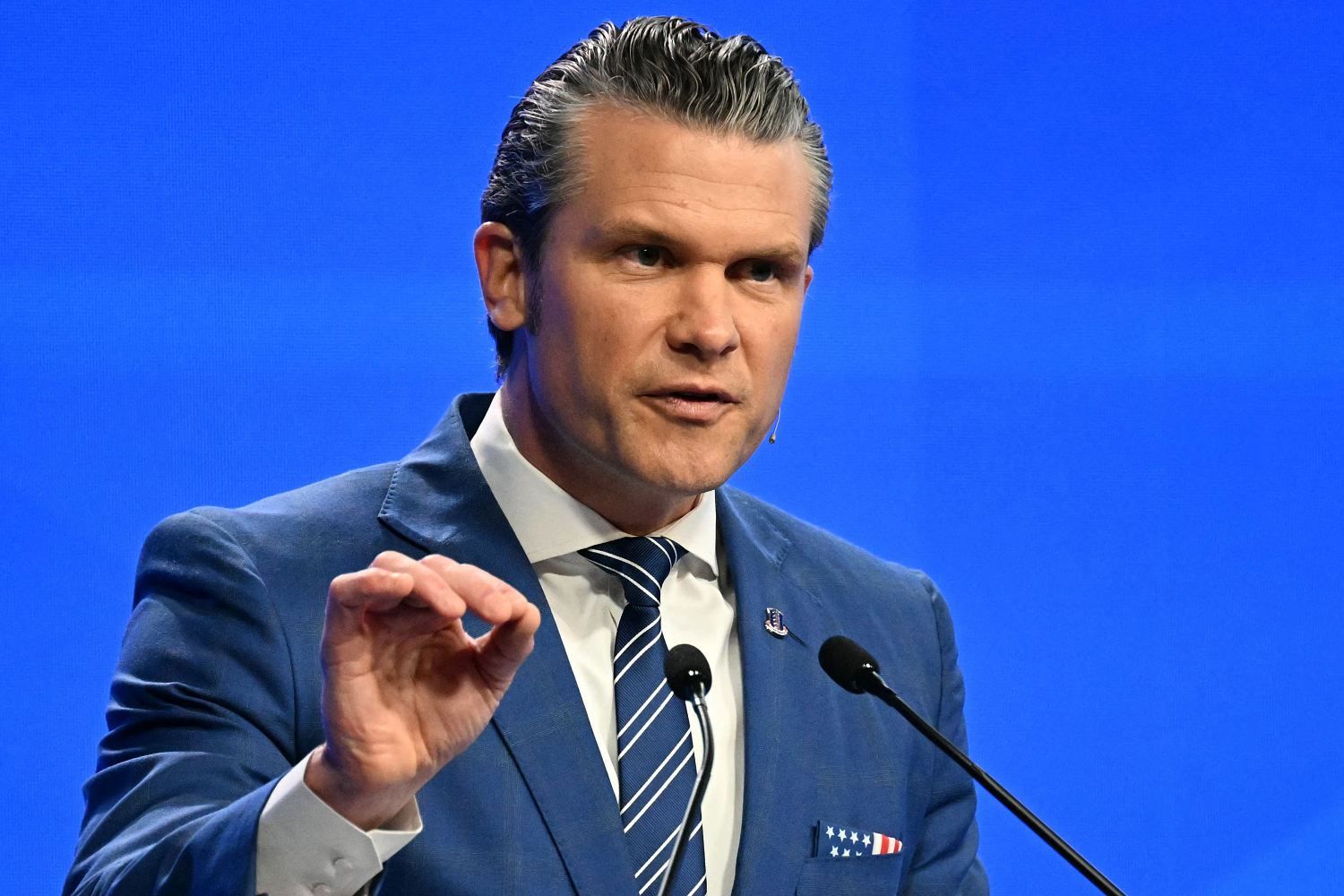
Defense Secretary Pete Hegseth reassured allies in the Indo-Pacific on Saturday that they will not be left alone to face increasing military and economic pressure from China, while insisting that they also contribute more to their own defense.
He said Washington will bolster its defenses overseas to counter what the Pentagon sees as rapidly developing threats by Beijing, particularly in its aggressive stance toward Taiwan. China has conducted numerous exercises to test what a blockade would look like of the self-governing island, which Beijing claims as its own and the U.S. has pledged to defend.
China’s army “is rehearsing for the real deal,” Hegseth said in a keynote speech at a security conference in Singapore. “We are not going to sugarcoat it — the threat China poses is real. And it could be imminent.”
China has a stated goal of having its military have the capability to take Taiwan by force if necessary by 2027, a deadline that is seen by experts as more of an aspirational goal than a hard war deadline.
But China also has built sophisticated man-made islands in the South China Sea to support new military outposts and developed highly advanced hypersonic and space capabilities, which are driving the United States to create its own space-based “Golden Dome” missile defenses.
Speaking at the Shangri-La Dialogue, a global security conference hosted by the International Institute for Security Studies, Hegseth said China is no longer just building up its military forces to take Taiwan, it’s “actively training for it, every day.”
Hegseth also called out China for its ambitions in Latin America, particularly its efforts to increase its influence over the Panama Canal.
He urged countries in the region to increase defense spending to levels similar to the 5% of their gross domestic product European nations are now pressed to contribute.
“We must all do our part,” Hegseth said.
Following the speech, the European Union’s top diplomat Kaja Kallas pushed back at Hegseth’s comment that European countries should focus their defense efforts in their own region and leave the Indo-Pacific more to the U.S. She said that with North Korean troops fighting for Russia and China supporting Moscow, European and Asian security were “very much interlinked.”
He also repeated a pledge made by previous administrations to bolster U.S. military capabilities in the Indo-Pacific to provide a more robust deterrent. While both the Obama and Biden administrations had also committed to pivoting to the Pacific and established new military agreements throughout the region, a full shift has never been realized.
Instead, U.S. military resources from the Indo-Pacific have been regularly pulled to support military needs in the Middle East and Europe, especially since the wars in Ukraine and Gaza. In the first few months of President Donald Trump’s second term, that’s also been the case.
In the last few months the Trump administration has taken a Patriot missile defense battalion out of the Indo-Pacific in order to send it to the Middle East, a massive logistical operation that required 73 military cargo aircraft flights, and sent Coast Guard ships back to the U.S. to help defend the U.S.-Mexico border.
Hegseth also cautioned that playing both sides, seeking U.S. military support and Chinese economic support, carries risk.
“Economic dependence on China only deepens their malign influence and complicates our defense decision space during times of tension,” Hegseth said.
Asked how he would reconcile that statement with Trump’s threat of steep tariffs on most in the region, Hegseth he was “in the business of tanks, not trade.”
Australia’s Defense Minister Richard Marles welcomed Hegseth’s assurance that the Indo-Pacific was an American strategic priority and agreed that Australia and other nations needed to do their part.
“Reality is that there is no effective balance of power in this region absent the United States, but we cannot leave it to the United States alone,” he said.
Still, Marles suggested the Trump administration’s aggressive trade policies were counterproductive. “The shock and disruption from the high tariffs has been costly and destabilizing.”
China usually sends its own defense minister to this conference, but Dong Jun did not attend this year in a snub to the U.S. over the erratic tariff war Trump has ignited with Beijing. Their absence was something the U.S. delegation said it intended to capitalize on.
“We are here this morning. And somebody else isn’t,” Hegseth said.
Hegseth said committing U.S. support for Indo-Pacific nations would not require local governments to align with the West on cultural or climate issues.
It’s not clear if the U.S. can or wants to supplant China as the region’s primary economic driver. But Hegseth’s push follows Trump’s visit to the Middle East, which resulted in billions of dollars in new defense agreements.





